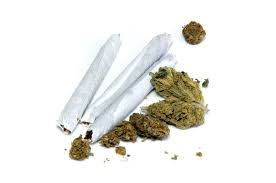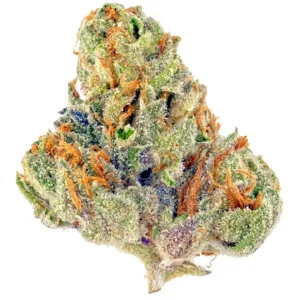Is Weed Addictive, As marijuana legalization spreads across the world, more people are exploring the effects of cannabis. Among the many questions surrounding its use, one of the most common is: Is weed addictive? The answer is more complex than a simple “yes” or “no.” It depends on various factors, including individual biology, patterns of use, and the potency of the cannabis consumed. In this article, we’ll break down what science says about marijuana addiction, dispel some myths, and provide a clearer understanding of what it means to be “addicted” to weed.
Defining Addiction
Before diving into whether weed is addictive, it’s important to understand what addiction is. The American Psychiatric Association defines addiction as a complex brain disorder characterized by compulsive substance use despite harmful consequences. Addiction can manifest through both physical dependence (where the body experiences withdrawal symptoms when not using the substance) and psychological dependence (where the user craves the drug for its effects on mood or behavior).
Marijuana and Its Addictive Potential
Marijuana, derived from the Cannabis plant, contains psychoactive compounds known as cannabinoids, with tetrahydrocannabinol (THC) being the most notable. THC interacts with the brain’s reward system, triggering the release of dopamine, which creates the “high” that users experience. This pleasurable effect can lead to repeated use, and over time, the brain can begin to rely on marijuana to produce these feelings of well-being.
Studies show that while marijuana is not as addictive as substances like heroin or alcohol, it can still lead to a condition known as cannabis use disorder (CUD). According to the National Institute on Drug Abuse (NIDA), about 9% of people who use marijuana will become addicted to it. This number increases to about 17% for those who start using weed in their teens and to 25-50% among daily users.
Signs of Cannabis Use Disorder
Cannabis use disorder involves problematic marijuana use that leads to distress or impairment in daily life. Some signs of CUD include:
- Inability to stop using: Users may find it difficult to quit even if they want to or have attempted to reduce their consumption.
- Cravings: A strong desire to use weed, often leading to preoccupation with getting high.
- Tolerance: Over time, users may need more weed to achieve the same effect.
- Withdrawal symptoms: These can include irritability, anxiety, insomnia, and physical discomfort when not using marijuana.
- Impact on daily life: Neglecting responsibilities at work, school, or home due to cannabis use.
Factors Influencing Marijuana Addiction
- Age of Onset: Early initiation of marijuana use, particularly during adolescence, is strongly associated with higher risks of developing cannabis use disorder. The brain is still developing during the teen years, making it more susceptible to the effects of drugs.
- Frequency of Use: Regular, heavy use of marijuana increases the likelihood of developing a dependence. Occasional users are far less likely to experience withdrawal symptoms or cravings.
- Genetics: Some people are genetically predisposed to addiction. Studies suggest that variations in certain genes may make individuals more vulnerable to developing cannabis use disorder.
- Psychological Factors: Individuals with mental health conditions such as anxiety, depression, or trauma may be more inclined to use marijuana as a coping mechanism, increasing the risk of addiction.
- Environmental Influences: Social and environmental factors, such as peer pressure, availability of the drug, and exposure to stressful situations, can also contribute to the risk of developing a cannabis use disorder.
Myths vs. Reality
There are many myths surrounding marijuana addiction, some of which contribute to misconceptions about the safety or risks associated with its use.
- Myth: Weed is completely non-addictive.
- Reality: While marijuana is not as addictive as harder drugs, it still has the potential to cause dependence, especially in regular users.
- Myth: Only heavy users can get addicted to weed.
- Reality: While heavy use increases the risk, even occasional users can develop psychological dependence over time, especially if they use marijuana as a coping mechanism.
- Myth: Marijuana addiction isn’t as serious as other addictions.
- Reality: Cannabis use disorder can significantly impair a person’s quality of life, affecting relationships, productivity, and mental health.
Treatment for Marijuana Addiction
For those who do develop cannabis use disorder, treatment options are available. The first step is often recognizing the problem and seeking help. Behavioral therapies, such as cognitive-behavioral therapy (CBT), have been shown to be effective in helping individuals manage their marijuana use. Support groups, such as Marijuana Anonymous, can also provide a sense of community and shared experience for those looking to quit.
In some cases, treatment may involve addressing underlying mental health issues that contribute to cannabis use. Dual-diagnosis treatment, which addresses both addiction and mental health disorders simultaneously, is often necessary for long-term recovery.
Conclusion
So, is weed addictive? The answer is yes, for some people, marijuana can be addictive. While it may not be as addictive as substances like opioids or alcohol, cannabis use can still lead to dependence and negatively impact a person’s life. Understanding the risks and being mindful of usage patterns is essential for making informed decisions about marijuana use. Whether you’re a recreational user or someone considering trying weed for the first time, it’s important to stay educated on the potential for addiction and take steps to prevent it.
If you or someone you know is struggling with cannabis use, seeking professional help can make a significant difference in breaking the cycle of addiction and reclaiming control over your life.
You Might Also Like These:



